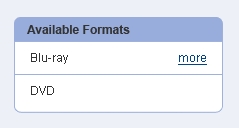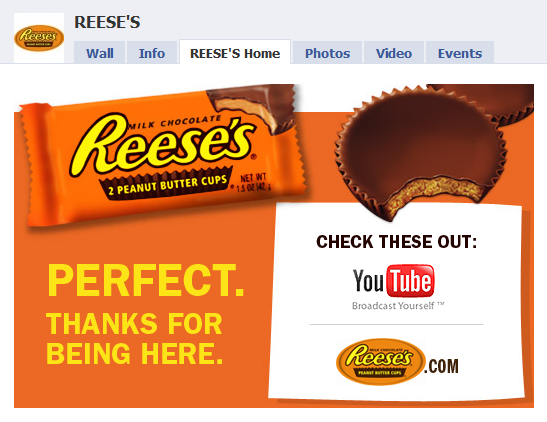This is a guest post from Josh Schnell, founder of Macgasm.net and web developer.
 Somewhere down the line, an exploitation has to occur in order for a financial profit to be realized. This is no less true for the world of social networks. Networks like Digg, FriendFeed, and Facebook are seeing huge growths in value, but the little guys, the ones actually providing the meat and potatoes for those operations, rarely see a nickel.
Somewhere down the line, an exploitation has to occur in order for a financial profit to be realized. This is no less true for the world of social networks. Networks like Digg, FriendFeed, and Facebook are seeing huge growths in value, but the little guys, the ones actually providing the meat and potatoes for those operations, rarely see a nickel.
Let’s be honest for a second here. The major “Web 2.0” and social networking technologies that have been created in the last several years have been a major boon for consumers and web users. They’ve aggregated the entire Internet into what’s cool and what’s not so cool. When searching for new and interesting websites, it is much preferable to visit a website on a friend’s recommendation than it is to use classic search engines. I’m not disputing the relevancy or success of these technologies to the average internet user. The problem as I see it is from a content creator paradigm, where the content creators are the ones footing the bills for bandwidth usage, paying the writers, and putting tears and sweat into their content so that it becomes sellable.
Unfortunately, it’s hard to maintain an environment where a high level of quality can be continued when some social networks are taking in content, verbatim, from multiple outside sources and passing it around their networks, without ever returning those interested in the information to the source. FriendFeed acts as a prime case in point when one considers the interest of the users on FriendFeed and then compares that to local statistics from the source article showing the rate of click throughs that the article received. It isn’t uncommon to see people sharing articles on FriendFeed, including all the images from the post, and then copying the entirety of the text into the comments section. Just like it’s not uncommon for someone to click the “Digg” button on Digg without ever visiting the site. It’s certainly not unthinkable that someone will import your RSS feed into another website without ever gaining any permission to do so. Some of those tactics may seem more vile than others, but a dangerous reality exists that no one is talking about — with social networks comes theft, and very little pay off for content creators.
Where is the incentive to click through? Why would anyone click through to a source when they are no longer required to click the link to finish getting the information from an interesting article? It starts looking a little bit less like “sharing” and “discussing” articles and a lot more like theft when put in this manner, doesn’t it? When contrasted with the StumbleUpon model, the FriendFeeds and Diggs of the world seem to have the process backwards. Why is it that these web applications allow users to rate an article before they’re even forwarded to it? Wouldn’t the most logical approach be creating a metric that counts a resources popularity by the number of people who actually click on the link, as opposed to click a “like” button?
Since these Javascript toolbars that follow you to the source article now seem to be an acceptable practice on some of these web applications, it makes a lot more sense to take away a user’s ability to like something, until they’re on that page or article that’s being referenced. The numbers would be a lot more representative if this approach was implemented, and the incentive to have users gaming these systems would be substantially diminished.
While the problem doesn’t solely lie on the shoulders of the developers who have been implementing the tools in these web applications, the responsibility for accurately monitoring true interest in submissions does.
With no incentive to click through to the source, we’re ridding content creators of their hard-earned payoffs. Advertisers aren’t going to pay a content producer if they aren’t getting traffic to their site, and certainly other revenue streams and models will be affected in the same manner. If content creators can’t make a living creating content, then the FriendFeeds of the world will cease to exist, and there will be nothing left to share, since their primary resource will have dried up. Resources aren’t limitless, and content will disappear if social services continue to exploit the hard work of the people who matter the most — the writers.





Liked your post.
I have earlier written about comment fragmentation and why it matters from an article author’s perspective. However, you are right in addressing other aspects of the equation regarding traffic and click-throughs.
If you are interested, read my post about Aggregators as Scatterers and Why It Matters: http://www.skepticgeek.com/socialweb/aggregators-as-scatterers-and-why-it-matters/
Thanks Mahendra, I think it’s something that’s going to need to be addressed soon, and not in a superficial way. Something I forgot to mention in the article is that I tracked the number of comments and “likes” on friendfeed, and compared them to my analytics information over the course of a month. There was a serious discrepancy between FriendFeed’s like’s and comments and the amount of traffic back to the site. It made me start to question what the value is in posting to some of these social networks.
This is a discussion that has no beginning and no end.
Content aggregators, RSS readers and new social networks are all aiming to deliver the most sought-after content to the people who want the news, wherever they are comfortable. Some of these sites also offer the ability to have commentary, including Facebook, Google Reader, FriendFeed, SocialMedian, and many others.
This new world is an evolution of the Web and it cannot be undone. But what people often miss from this discussion is that each of these sites drives significant traffic. The examples you gave of people copying full text of a story somewhere else is in the very slim minority from my experience.
For me, FriendFeed is the #2 driver of traffic to my Web site, behind only Google. The more I participate on social networks like Twitter, Socialmedian, Facebook, and Google Reader, the more my content is being shared and distributed and discussed. While I don’t count page views and worry about ads or any of that nonsense, I know that people are going to find my content and discuss it wherever they like.
We must evolve as content creators. Those of us who cling to the old ways will perish. So adapt and keep going.
This is definitely a controversial topic!
Louis, I understand the value of RSS — at least with full feeds (which is totally opt-in by the content creator who wants to disseminate content in this way). I think the big issue here is more about sites with snippets of text. Josh’s examples relate to sites like Digg, which allows a short description, and FriendFeed, which is similar in that respect. FriendFeed specifically is troubling. People “like” and comment on content *all the time*, but the number of them who actually *read* the content is a different story.
FriendFeed’s activity for me has ebbs and flows. Sometimes I’m incredibly active. Sometimes I’m not (like now). Often, the turning point for me on FF is when I post something and there’s no engagement, thereby reinforcing the thought that FriendFeed is a self-serving (good for FF, bad for us) platform that doesn’t ever benefit the content creator. I’m sure you’ve seen my discussions on that.
Perhaps this is the fault of FriendFeed’s realtime feature. People never see anything. But then again, they just want to snack. They don’t care about really engaging with the content. Sure, it’s an evolution, but I do think the selfishness of the pursuit is not good for any of us who want to leverage the technologies to turn a profit (or at least true engagement and awareness).
I think the biggest problem here is that these network don’t truly have systems in place to redirect the traffic before someone recommends it. Being able to digg something without ever even having to read the article is backwards. Being able to “like” something without ever having to actually see what they’re liking is backwards. These sites have a responsibility both to T their new users, who are assuming there’s general interest in a topic based on diggs or likes, and to the content creators providing the content, to ensure that the system is genuine recommendations, and not a lip service to gain popularity on the network. This is a win-win approach.
Ah, glad to see Louis commenting here. After I had expressed my thoughts in my blog post, I had an exchange with Louis on Twitter about comment fragmentation. And he pretty much said the same thing (in 140 char): that he likes to enable his readers to engage and comment *wherever they feel comfortable*.
That did make me think about where the web is evolving and the importance of adapting to it as he suggests.
Mahendra: I contacted Louis and think that we’re agreeing but we’re actually not discussing the right thing. I have NO PROBLEM with conversations happening offsite. I’ve learned to adapt by integrating those conversations on my blog wherever I can (as you can see, Richard Cunningham just posted on Louis’s site and you can read it here. You can also see FriendFeed posts below). HOWEVER, my problem is more of a behavioral issue. The traffic is not there. I bet you could see a post with 100 Likes on FriendFeed, and perhaps only 5-10 of the people who Liked the article actually visited it. I’m guilty of this. At the present time, this post was Liked by 4 people on FriendFeed (one of whom wrote this article) and I would bet that none of them actually checked this out. And why only 4? I have over 3300 followers on FF. I’d go as far as faulting this to real time, too, since I think there’s be more engagement if people actually had time to SEE the links to visit the posts. That’s why FF is notoriously bad about it.
Tamar,
While Louis says FF is his 2nd highest source of traffic, he surely must realize that it is true probably only for FF superstars like him. The real-time aspect lacks persistence and contributes to items just flowing by when no one is active.
I perfectly empathize with what you’re saying about traffic – my original post was on Posterous, and the number of “likes” on FriendFeed were higher than the number of “faves” on Posterous – both need just one click but one has to visit the Posterous site, unlike just clicking “like” on an item in your FF stream.
But let’s look at it another way: if your post didn’t appear on FriendFeed at all, would readers have flocked to your site? In other words, is FriendFeed really stealing your traffic away or is it just another way to market your content with a clickthrough ratio of its own?
In the same way that a content creator chooses to offer a full RSS feed in the hope that some but not all readers actually visit the site, we may look at FriendFeed as one more way to market and distribute your content.
What I’m sometimes uncomfortable with, as Josh points out, is people other than the author posting on FriendFeed and getting likes and comments for their shares, rather than the author’s share. Since I’m a prolific Google Reader sharer, even with few hundred FriendFeed subscribers, I find likes and comments on GR items I’ve shared. I sometimes wish there was a way for me to redirect those “likes” and comments directly to the author, since I didn’t create that content myself! 🙂
I’m just thinking out loud here, by the way. As I said, I’m still thinking about all this.
Mahendra: you make a good point. (I’d kid with Louis to say that if FF is his second most popular source of traffic, he must not be getting much traffic at all. 😉 Again, I kid.) But for me, not a FF superstar but not a FF nobody, the difference in visitors is about 1. One.
The thing I like about RSS feeds is that if someone wants to share it, he can. If someone wants to comment on it, usually he’d do that by visiting my blog. And if he doesn’t, he might say something about it on Twitter (and tools are allowing me to find out the sentiment so that I could get the feedback instantaneously).
I guess I phrased it incorrectly previously. It’s not so much the *traffic* I care about. It’s actually the full content, my thoughts in entirety, that I want people to read. How is someone able to “like” a blog post on the basis of a title (or a short description)? They don’t. They have no idea what the post is about, but you know, the title looks good, so they hit Like for that reason. Digg is the same way. People don’t read the articles. They vote on the basis of a title and description. There’s a lot more to it than the 50 words that you’re limited to in the text area, but thoughts are not conveyed in small textareas.
Does that make more sense?
Yes, that makes complete sense and I am in full agreement. Without reading the content in its entirety, systems and services that enable people to “like” the title or snippet are diluting true conversation and discussion surrounding the content.
People should use pages like favtabs to browse the net. This thing could really generate traffic not rss or friendfeed. E.g. I read formula1 news on http://favtabs.com/f1 instead of f1 feeds.
Realistically a lot of content creation is going to stop. This is because so much of it is being produced at a loss to the creator (as noted by Mr Murdoch recently).
MBA 101: you can only compete on price or product differentiation.
A lot of the major content producers like publishing groups have too much overhead to compete on price with bloggers etc and there’s too many places to get the same content so they can’t differentiate.
They will shut down and their share prices reflect this and that should (eventually) help content producers demand better prices for their content.
Tamar,
I’m returning to this old post to further note the worsening situation on Twitter. Forget Digg/Friendfeed. I find people retweeting and responding to tweets containing headlines and the link, without reading the linked post.
I just had to express my frustration somewhere! 🙂
Interesting! I guess I’m not all too surprised, really. They vouch for the person who wrote the content but do not care to actually read the content. It was always like that on Digg/FriendFeed. I guess it’s a “social” problem.